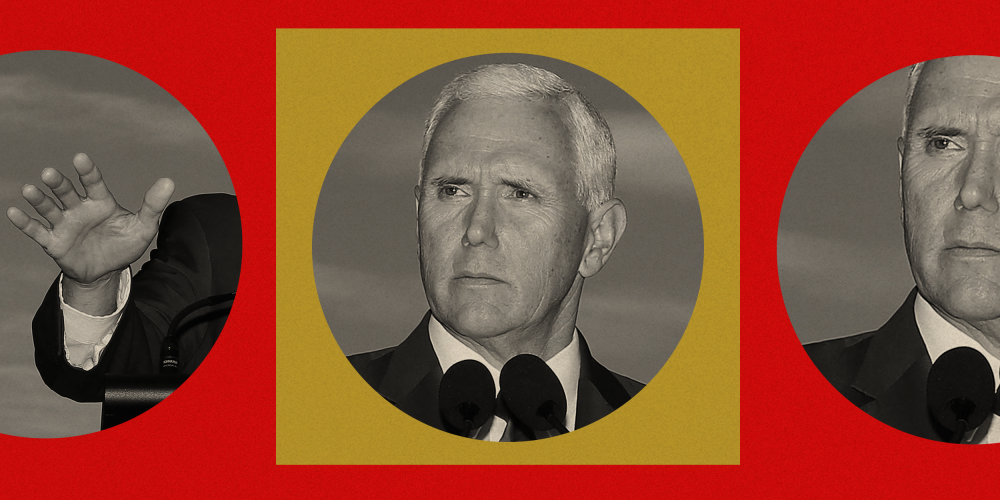The first GOP primary debate features 8 candidates — and one Trump-sized elephant in the room. Are any of the hopefuls fit to be president? Read this installment of MSNBC’s 2024 profile series and find out.
Do not feel sorry for Mike Pence. No one made him build his political career on cruelty to the oppressed. No one forced him to debase his Christianity to run with a manifestly ungodly man. And no one obligated Pence to spend months begging that ungodly man’s supporters, fruitlessly, to take him back.
Neither Pence nor his disastrous 2024 campaign deserve anyone’s sympathy. But we should resist schadenfreude, because ultimately his failures are rooted in cracks in our democracy’s foundations.
Neither Pence nor his disastrous 2024 campaign deserve anyone’s sympathy.
Some days, Pence must wonder what went wrong. Whatever strain of “conservatism” a Republican voter most appreciates — social, fiscal, national security — Pence has practiced them all fervently. He broke through in electoral politics after eight years hosting conservative talk radio, defending everything from the nuclear family to Big Tobacco. As a congressman, he was a founding member of the Tea Party Caucus and developed close relationships with major GOP donors like the Koch brothers. As Indiana’s governor, he cut taxes and signed an anti-gay “religious freedom” bill. And as vice president, he tended to Trump’s relationship with the party’s most religious members. Every box that needed checking, Pence marked it off dutifully.
He undoubtedly expected to be more competitive than this. Instead, in every sense of the word, Pence’s 2024 campaign is the saddest in modern American history. Ever since primary elections overtook party convention selections, no former vice president has flamed out so spectacularly so soon after serving.

Of course, the vice presidency does not guarantee a presidential nomination. But if an easy path to the presidency exists, it surely runs through the vice presidency. The office occupies the premium place in both the formal line of succession and the informal line of political inheritance. The ideologically idiosyncratic presidential ticket (think conservative Texan John Nance Garner under liberal New Yorker Franklin Delano Roosevelt) no longer exists; more than ever, the vice president is the president’s default successor. Of the 15 to have served since World War II, eight have been subsequently nominated for president by their parties, and four have won. Presidents who failed to win a second term (and their VPs) have typically been banished to the political wilderness.
But in this election, the loser of the last cycle has refused to cede the field. He’s left no mantle for Pence to assume, and his lead over the rest of the Republican contenders only grows. Meanwhile, Pence is laboring simply to make the debate stage. Both national and state-level polls put Pence firmly in the single digits. His campaign has been reduced to measuring success against the likes of former U.S. Ambassador to the United Nations Nikki Haley and failed drug developer Vivek Ramaswamy — a humiliating comedown for a man whose résumé dwarfs theirs.
Sure, even Pence might admit he has some weaknesses as a candidate. His religious conservatism fares poorly with moderates, especially with abortion rights prominently on the ballot. At 64 and with two decades in public office, he can’t pretend to be a candidate of change. And the man who once turned in his own fraternity brothers for holding a keg party lacks the charisma of Trump or Ronald Reagan. On the other hand, in the past 50 or so years the GOP has nominated Richard Nixon, Gerald Ford and Mitt Romney — youth and charm are clearly not prerequisites.













